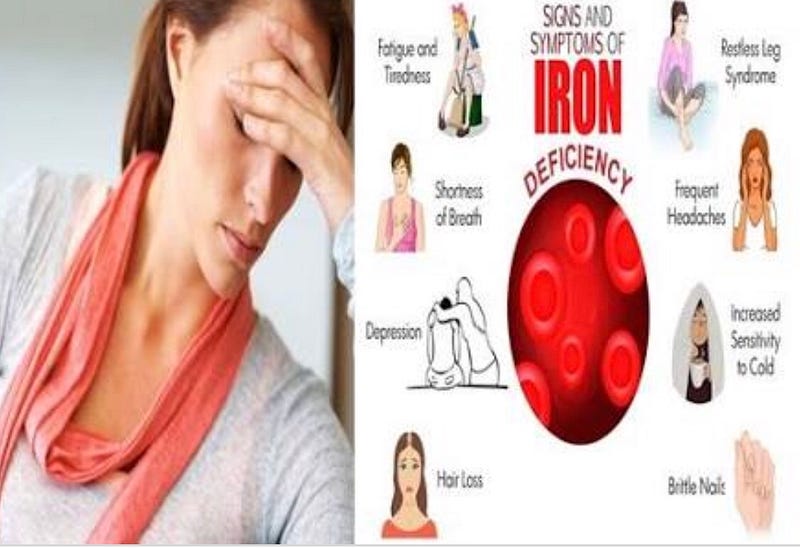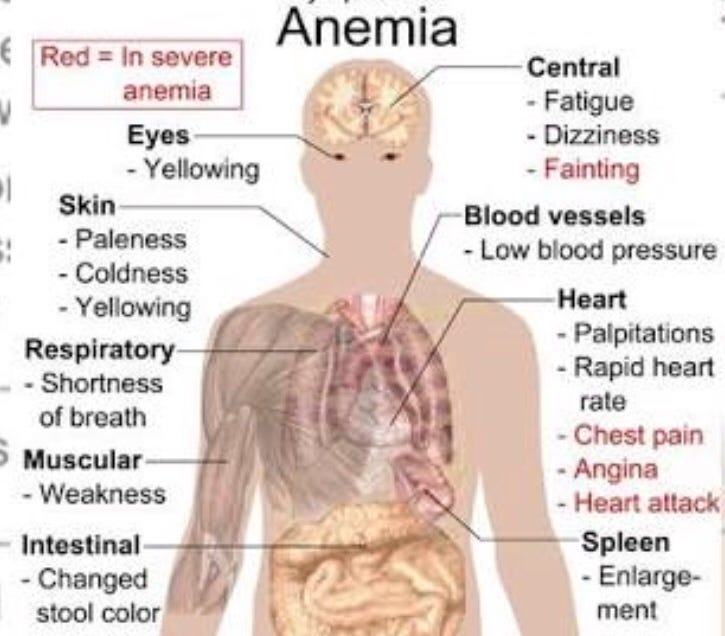iron deficiency
Why I selected iron deficiency topic to be discussed?
Having enough iron in our bodies is essential for good health. Iron deficiency is the most common nutritional deficiency in the world. Low levels can be due to not taking in enough iron from your diet, not absorbing enough into your system or losing too much from your body. Treatment will depend on the cause.
As the name implies, iron deficiency anemia is due to insufficient iron. Without enough iron, your body can’t produce enough of a substance in red blood cells that enables them to carry oxygen (hemoglobin). As a result, iron deficiency anemia may leave you tired and short of breath.
You can usually correct iron deficiency anemia with iron supplementation.
Iron is used to produce red blood cells, which help store and carry oxygen in the blood. If you have fewer red blood cells than is normal, your organs and tissues won’t get as much oxygen as they usually would.
There are several different types of anaemia, and each one has a different cause. Iron deficiency anaemia is the most common type.
Iron deficiency anemia occurs when the body lacks sufficient amounts of iron, resulting in reduced production of the protein hemoglobin. Hemoglobin binds to oxygen, thus enabling red blood cells to supply oxygenated blood throughout the body. Children, pre-menopausal women (women of child-bearing age) and people with poor diet are most susceptible to the disease. Most cases of iron deficiency anemia are mild, but if not treated can cause problems like fast or irregular heartbeat, complications during pregnancy, and delayed growth in infants and children.
Causes
For men, and for women whose periods have stopped, iron deficiency anaemia can be a sign of bleeding in the stomach and intestines caused by:
- taking non-steroidal anti-inflammatory drugs (NSAIDs) such as ibuprofen and aspirin
- stomach ulcers
- swelling of the large intestine (colitis) or of the food pipe (oesophagus)
- piles
- cancers of the bowel or stomach – but this is less common
- Any other conditions or actions that cause blood loss could lead to iron deficiency anaemia.
Symptoms
Iron deficiency anemia signs and symptoms may include:
- Extreme fatigue
- Weakness
- Pale skin
- Chest pain, fast heartbeat or shortness of breath
- Headache, dizziness or lightheadedness
- Cold hands and feet
- Inflammation or soreness of your tongue
- Brittle nails
- Unusual cravings for non-nutritive substances, such as ice, dirt or starch
- Poor appetite, especially in infants and children with iron deficiency anemia
Risk factor
- can make you more at risk of illness and infection – a lack of iron affects the immune system
- may increase your risk of developing complications that affect the heart or lungs – such as an abnormally fast heartbeat (tachycardia) or heart failure
- in pregnancy can cause a greater risk of complications – before and after birth
Diagnosis
A blood test is taken to look for the levels of iron (ferritin) in your blood and to make sure that you aren’t also anaemic. If you are short of iron, your ferritin level will usually be low. A full blood count (FBC) will also be taken. This looks at the number, size and colour of your red blood cells. If you have iron deficiency, your red blood cells will be smaller and paler than normal. If there are also not as many red blood cells as normal then you also have iron-deficiency anaemia
Treatment
If your blood test shows your red blood cell count is low (deficient) you’ll be prescribed iron tablets to replace the iron that’s missing from your body.
The prescribed tablets are stronger than the supplements you can buy in pharmacies and supermarkets.
You’ll have to take them for about 6 months. Drinking orange juice after you’ve taken them may help your body absorb the iron.
Some people get side effects like:
- constipation or diarrhoea
- tummy pain
- heartburn
- feeling sick
- black poo
Try taking the tablets with or soon after food to reduce the chance of side effects. It’s important to keep taking the tablets even if you get side effects.
Iron rich food should be added in your diet
If you do not eat meat or fish, it is even more important to ensure that you include some or all of the following food groups in your diet:
- Pulses: chickpeas, lentils, kidney beans, and soy beans, including tofu.
- Dark green leafy vegetables: cabbage, broccoli and kale. (Beware spinach and chard though, as they contain oxalic acid which is thought to interfere with iron absorption.)
- Cereals, such as breakfast cereals (may also have added iron).
- Eggs.
- Grains: brown rice and wholemeal pasta.
- Dried fruit: especially apricots, raisins, dates and prunes.
- Nuts: cashews and almonds.
Iron supplements
If possible, a dietary deficiency should be treated by improving your diet. However, if your iron deficiency is due to some other cause then you may need to take iron supplements. There are several different forms of iron supplements that are available to treat iron deficiency:
- Ferrous sulfate
- Ferrous fumarate
- Ferrous gluconate
These all have the potential to cause side-effects and are dangerous in overdose, so should always be kept out of the reach of children.


Comments
Post a Comment